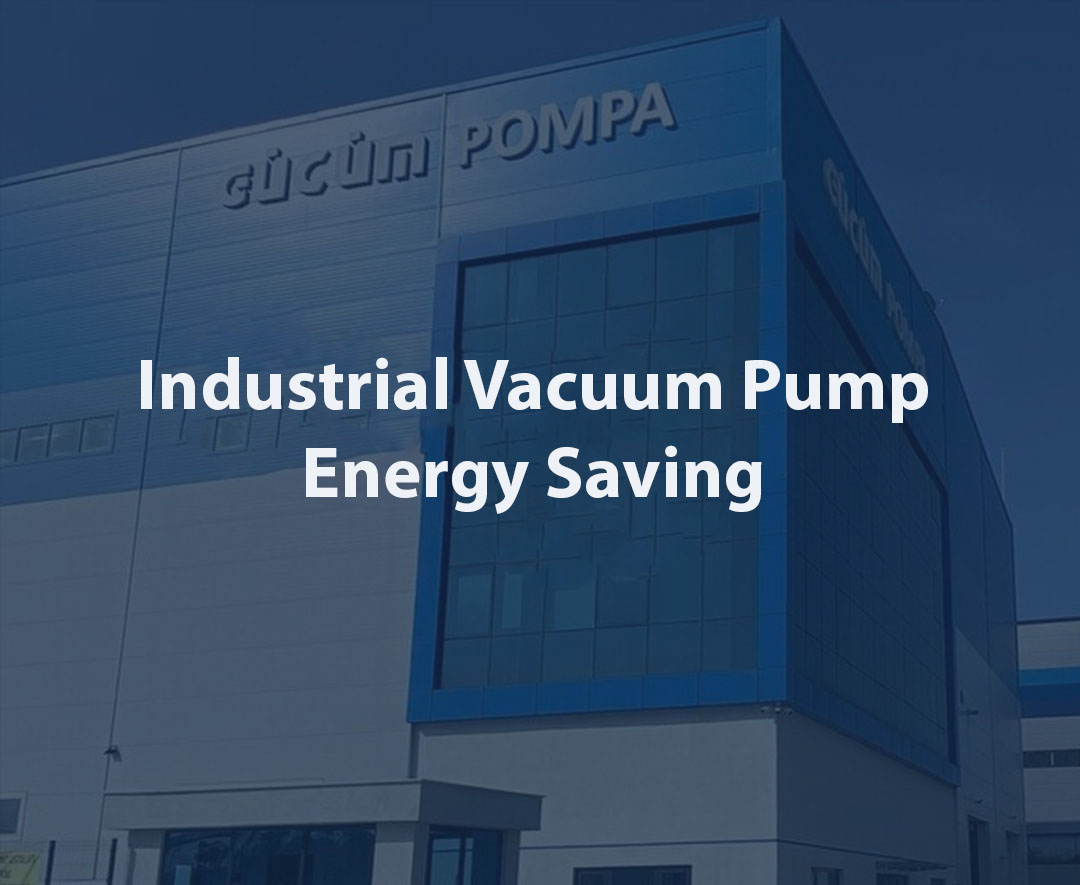Industrial Vacuum Pump Energy Saving
The Importance of Energy Efficiency in Industrial Vacuum Pumps
Industrial vacuum pumps are one of the significant energy-consuming equipment for businesses. The energy efficiency of these pumps plays a critical role in reducing operational costs and minimizing environmental impacts. Modern technologies and designs not only enhance operational efficiency by saving energy but also contribute to sustainability goals.
Choosing Energy-Efficient Vacuum Pumps
When selecting energy-efficient vacuum pumps, several factors should be considered. For example, models with low energy consumption should be preferred, and the pump's nominal efficiency levels should be reviewed. Additionally, performing energy consumption analyses during the pumps' operating processes ensures the right choice is made.
Power Control and Automation in Vacuum Pumps
Power control and automation systems in industrial vacuum pumps are crucial elements for enhancing energy efficiency. Smart control systems optimize the energy consumption of pumps and prevent unnecessary energy expenditure. These systems also allow remote monitoring and intervention, increasing operational efficiency for businesses.
High-Efficiency Motors in Vacuum Pumps
High-efficiency motors are an essential component for improving the energy efficiency of vacuum pumps. Motors with low energy loss enable pumps to consume less energy and have a longer lifespan. This reduces operational costs for businesses and supports sustainability goals.
Energy Recovery and Heat Management
Energy recovery and heat management strategies in industrial vacuum pumps are important methods for energy savings. These strategies allow for the recovery of waste energy from pumps and reduce energy costs for businesses. Heat management optimizes the operating temperatures of pumps, further enhancing energy efficiency.

The Impact of Regular Maintenance on Energy Efficiency
Regular maintenance is crucial for maintaining the energy efficiency of vacuum pumps. Factors such as dirty filters, worn components, and oil shortages can increase energy consumption of the pumps. Regular maintenance optimizes pump performance and ensures energy savings.
Technological Innovations for Energy Savings
Advancing technologies offer new opportunities for enhancing the energy efficiency of industrial vacuum pumps. For example, new materials and design methods used in vacuum pumps minimize energy losses. Additionally, smart sensors and IoT integrations optimize pump performance and ensure energy savings.
Energy Efficiency Certified Vacuum Pumps
Energy efficiency certified vacuum pumps are models that meet specific energy-saving standards and are certified accordingly. These pumps help businesses achieve their energy efficiency goals and reduce environmental impacts. Choosing certified products ensures reliable and high-performance vacuum pumps for businesses.
Using Renewable Energy in Vacuum Pumps
Renewable energy sources are an effective method for reducing the energy consumption of industrial vacuum pumps. Renewable sources such as solar or wind energy reduce energy costs and lower carbon footprints for businesses. Using these sources contributes significantly to the sustainability strategies of businesses.
The External Energy Efficiency Effects of Vacuum Pumps
The energy efficiency of vacuum pumps also contributes to the overall energy efficiency strategies of businesses. Optimizing the energy consumption of pumps reduces total energy costs and enhances sustainability performance. Therefore, energy efficiency strategies play a critical role in the use of vacuum pumps.
Cost Reduction Strategies through Energy Efficiency
For industrial businesses, the energy efficiency of vacuum pumps is directly related to cost reduction strategies. High energy-efficient pumps lower energy bills for businesses. This enhances competitiveness and supports achieving sustainability goals.
Return on Investment (ROI) and Energy Efficiency
Calculations of return on investment (ROI) for energy-efficient vacuum pumps are important for business owners. Pumps with lower energy consumption amortize investment costs in the short term and provide profitability in the long term. Thus, selecting energy-saving pumps positively affects the financial performance of businesses.
Environmental Sustainability and Energy Efficiency
The energy efficiency of industrial vacuum pumps also contributes to environmental sustainability goals. Pumps that consume less energy reduce carbon footprints and help conserve natural resources. This allows businesses to meet their social and environmental responsibilities.
Energy Efficiency and Global Competitiveness
To remain competitive in the global market, industrial businesses must adopt energy efficiency strategies. Energy-saving vacuum pumps provide cost advantages and increase productivity. This helps businesses become more competitive in international markets.
Energy Efficiency Programs and Incentives
In some countries, energy efficiency incentive programs encourage the renewal of industrial equipment such as vacuum pumps. These programs facilitate the purchase of energy-efficient equipment and reduce costs for businesses. Companies can use these incentives to shorten the payback period for energy efficiency investments.
Future Technologies and Energy Efficiency
In the future, new technologies are expected to further enhance the energy efficiency of industrial vacuum pumps. For example, more efficient motors, smart control systems, and renewable energy integrations can further reduce pump energy consumption. The widespread adoption of these technologies will make it easier for businesses to achieve their energy efficiency goals.
Energy Efficiency Training and Awareness
Creating a culture of energy efficiency within businesses, training employees, and raising awareness is important. Energy-saving usage habits reduce energy costs and improve sustainability performance. Therefore, conducting energy efficiency training and awareness campaigns can be beneficial for businesses.
Conclusion
The energy savings of industrial vacuum pumps are a critical issue for businesses. Choosing the right pumps, integrating power control and automation systems, regular maintenance, and utilizing innovative technologies enhance energy efficiency and reduce operational costs. This guide will help businesses understand energy-efficient vacuum pumps and find the most suitable solution.
Selecting energy-efficient pumps, integrating power control and automation systems, regular maintenance, and utilizing innovative technologies will increase energy efficiency and reduce operational costs. This guide will help businesses understand energy-saving vacuum pumps and find the best solution.

